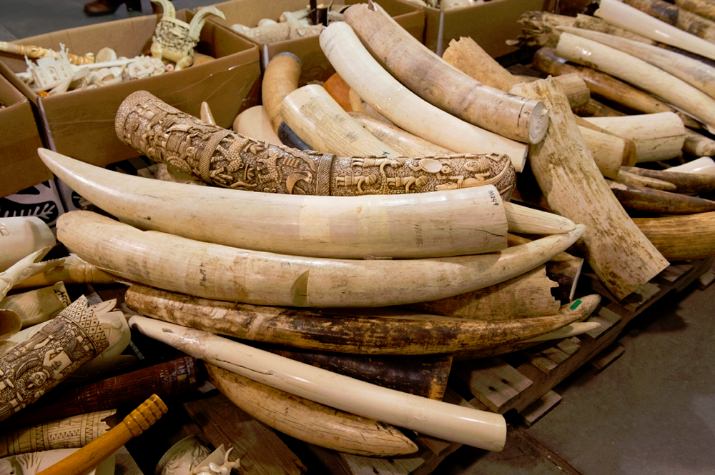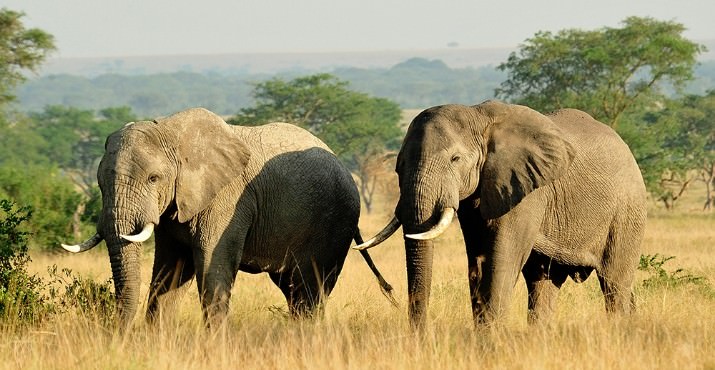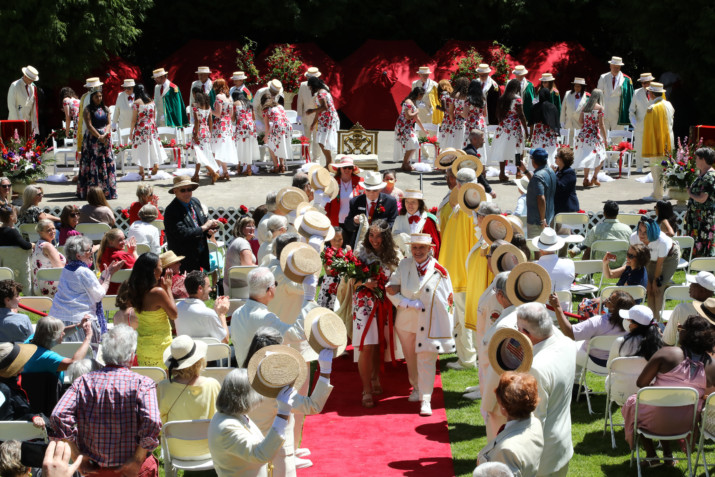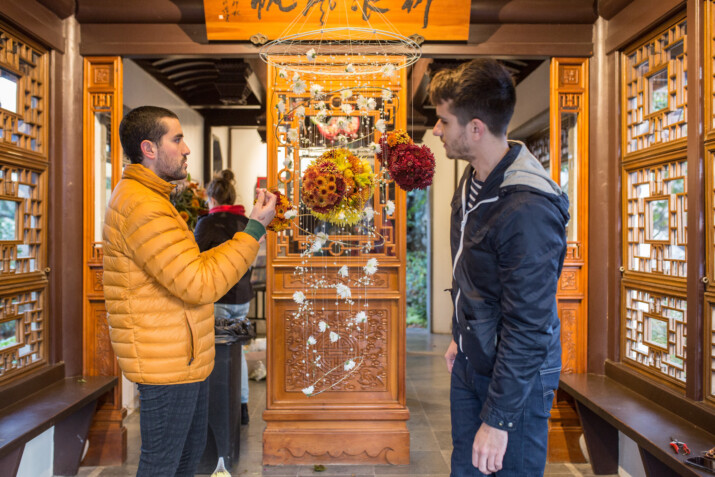Portland, January 9th, 2014. The Oregon Zoo has ramped up efforts to combat the illegal ivory trade by partnering with The Wildlife Conservation Society on the recently launched 96 Elephants campaign.
Named for the number of elephants poached daily in 2012, the campaign aims to end the sale of ivory in the United States, which conservationists believe is a key step in decreasing demand for the trade that kills elephants for their tusks. The zoo is urging community members to sign an online petition asking Congress to enact a moratorium on domestic ivory sales. To sign the petition, go to bit.ly/noivory.
In December, the Oregon Zoo Foundation provided $10,000 for the 96 Elephants campaign, which will support park guards, intelligence networks, and government operations in protected areas for elephants throughout the Congo Basin and East Africa, among other projects.

With the illegal ivory trade at its highest point since 1989, tens of thousands of wild elephants are being killed each year for their tusks. Photo by Julie Larsen Maher, courtesy of The Wildlife Conservation Society.
“Many people don’t realize that ivory is still legally sold in the U.S.,” said Nadja Wielebnowski, Oregon Zoo conservation and research manager. “Confusing regulations are also enabling a thriving black market for ivory in the U.S., which helps to drive the illegal killing of elephants. By avoiding ivory and openly stating their opposition to the ivory trade, Americans can tell the world that an elephant’s life is more valuable than a trinket.”
Operated by international crime syndicates, the illegal ivory trade is now at its highest point since 1989. Most ivory is used to carve ornamental objects, jewelry and trinkets.
Over the past months, both the U.S. and China — the world’s two largest markets for wildlife products — publicly destroyed a combined total of more than 12 tons of illegal ivory to underscore those governments’ commitment to combatting wildlife crime.
Plans are in the works to address the zoo’s own stockpile of ivory — currently stored in a high-security facility — donated over the years by community members who didn’t want or know how to dispose of it.
“Our community has demonstrated a profound compassion for elephants,” said Kim Smith, zoo director. “The Wildlife Conservation Society’s 96 elephants campaign gives us another tool for ending the trade that fuels the slaughter of these animals, and we encourage our community to join the fight.”
For the past 15 years, the zoo has worked to protect Asian and African elephants throughout their range by supporting field research and projects to mitigate human-elephant conflict through the International Elephant Foundation.
This year’s projects include purchasing field equipment for anti-poaching rangers in Kenya, training villagers to patrol and monitor for elephants in Myanmar, and micro-chipping Laotian elephants to reduce illegal capture.
The zoo is a service of Metro and is dedicated to its mission of inspiring the community to create a better future for wildlife. Committed to conservation, the zoo is currently working to save endangered California condors, Oregon silverspot and Taylor’s checkerspot butterflies, western pond turtles and Oregon spotted frogs. Other projects include studies on Asian elephants, polar bears, orangutans and giant pandas. Celebrating 125 years of community support, the zoo relies in part on donations through the Oregon Zoo Foundation to undertake these and many other animal welfare, education and sustainability programs.
The zoo opens at 10 a.m. daily and is located five minutes from downtown Portland, just off Highway 26. The zoo is also accessible by MAX light rail line. Visitors who travel to the zoo via MAX receive $1.50 off zoo admission. Call TriMet Customer Service, 503-238-RIDE (7433), or visit www.trimet.org for fare and route information.
General zoo admission is $11.50 (ages 12-64), $10 for seniors (65 and up), $8.50 for children (ages 3-11) and free for those 2 and younger; 25 cents of the admission price helps fund regional conservation projects through the zoo’s Future for Wildlife program. Additional information is available at www.oregonzoo.org or by calling 503-226-1561.
















